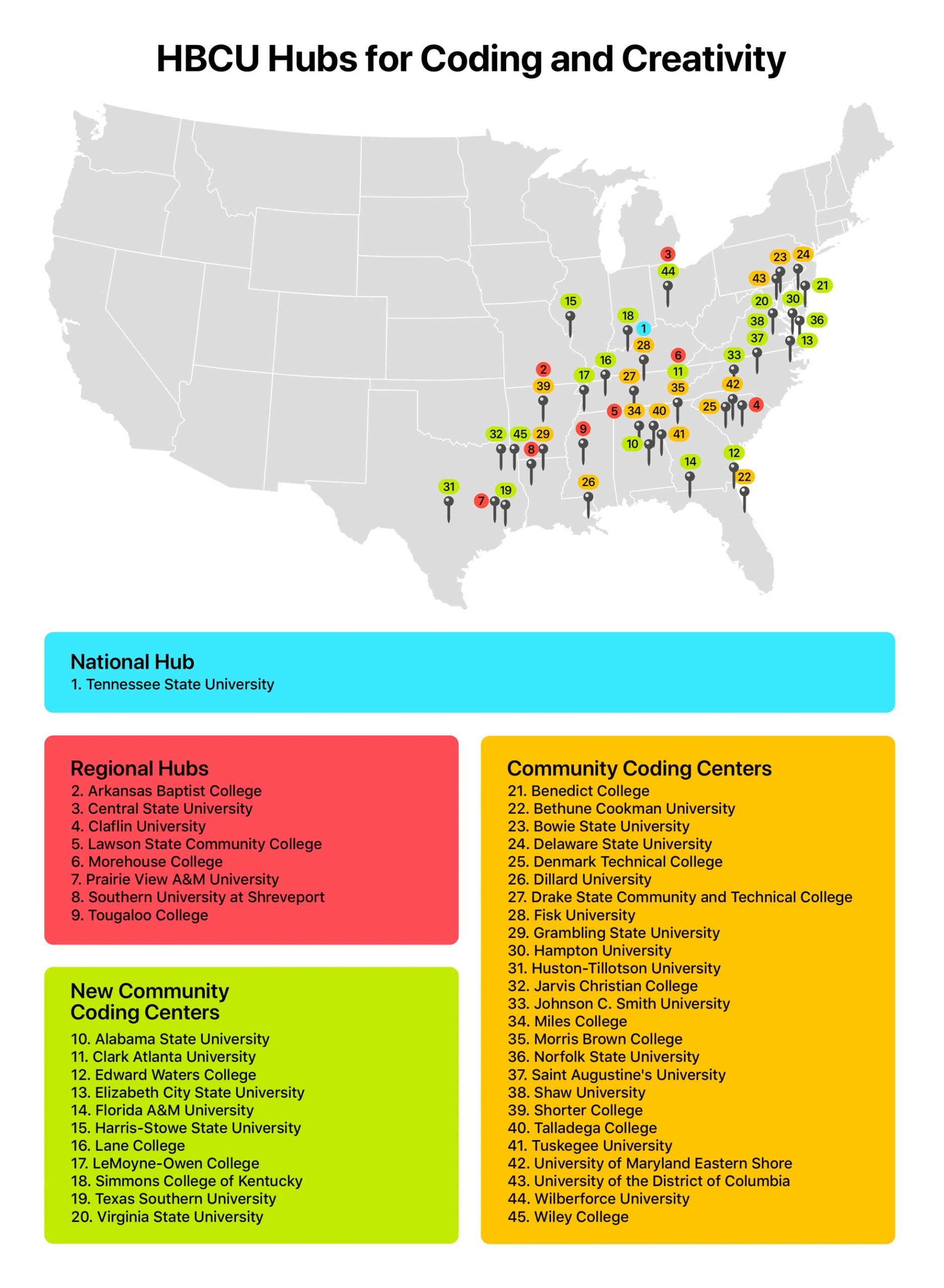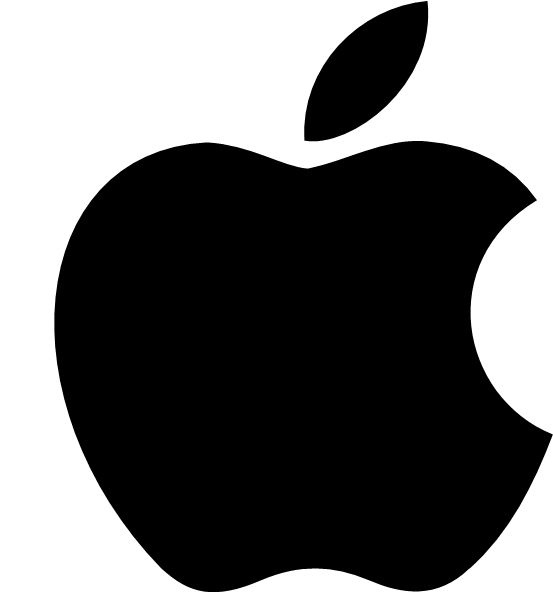Students and faculty at nearly half of all historically Black colleges and universities now have access to new Apple technology and resources to learn and teach coding thanks to an expansion in late August of a multi-million dollar initiative, the HBCU C2 initiative.
Tennessee State University first approached the tech giant in 2019 about partnering on a program that would bring its technology and coding curricula to HBCUs across the country.
“With HBCUs, we don’t compete, we complete each other,” Robbie Melton, Associate Vice President of Tennessee State University’s SMART Innovation Technology Center, told The Plug. “If we were going to seek resources from Apple, we wanted it to be for all.”
Apple agreed to partner with Tennessee State to create the HBCU C2 initiative, initially bringing coding and app development experience to a little over a dozen HBCUs. Over the past two years, it has since expanded to 45 schools, with 11 joining the initiative a few weeks ago.
The partner schools receive over $75,000 of equipment (MacBook Pros, iPads, Apple pencils) at no cost to the school. The mobile center, as Melton refers to them, can be used by different departments. The library at Tennessee State also has iPads students can check out.
Select faculty at the partner HBCUs also receive training on how to incorporate Apple’s coding language for iOS apps, Swift, into their curricula. The tech giant has also created an internship pipeline for students who go through the full Swift curriculum. Two students have completed the curriculum and are ready for the internship.
This is not the first time Apple has supported HBCUs. In June, the company announced a $5 million grant to support engineering schools at four HBCUs: Alabama A&M University, Howard University, Morgan State University and Prairie View A&M University. In January, the company announced the launch of the Propel Center, a leadership and career development center for HBCUs that will be built in Atlanta.
Apple’s impact on HBCUs
Alabama State University was one of 11 schools to join the HBCU C2 initiative in late August. While the school is still discussing how exactly it will use Apple’s resources, it is currently training computer informatics professors on the Apple curriculum and is planning on launching coding camps for its students and K-12 students from the community.
“This opportunity also allows us to provide access and equity opportunities to students who would not otherwise have the chance to participate in such camps or have such curriculum afforded to them,” Tanjula Petty, Assistant Provost for Student Success and Special Initiatives at Alabama State, told The Plug.
“Many of our students come from the Black Belt region in Alabama, the area with the highest poverty rate. For these students, we know that they lack broadband, they lack internet access, they lack technology,” she continued. “Having this as a resource helps bring them up to speed.”
Making sure students have the technology they need to succeed is also a priority of Norfolk State University. The school joined the HBCU C2 initiative in 2020, but at the beginning of September, it deepened its partnership with Apple by becoming one of the first HBCUs to provide students, faculty and staff with Apple devices, distributing more than 6,000 Apple products.
“One of the softball student athletes raises their hand and says, ‘Are we really getting iPads?’” Javaune Adams-Gaston, President of Norfolk State, told The Plug. “And I said, ‘No, you are not getting iPads, you’re getting iPad Pros, you’re getting folio keyboards, you’re getting the iPad pencil and you’re getting noise-cancelling [AirPod Pros].’ And they fell out, they were so excited and so happy.”
Students get to keep their devices through their enrollment and once they graduate, they can purchase it from the school for just $1. Faculty and staff get the technology at no charge.
While Adams-Gaston did not disclose how much this program is costing the school, she said it was part of the investment the school has made over the pandemic to support students and faculty. The school has already planned to provide the technology for next year’s entering class.
Adams-Gaston hopes being part of the HBCU C2 initiative and providing students with some of the latest technology will make Norfolk State students competitive in the workforce.
“We want our students to have every opportunity not only to have the tools, but the learning and the understanding that will make them competitive and make sure that they have exposure that their peers have nationally,” she said.
When Melton at Tennessee State approached Apple years ago about making an investment in HBCUs, it was for the long haul.
“We don’t want a bandaid. We don’t want short-term. We want empowerment, which means a long-term commitment,” Melton said. “Apple is an innovation company, they will always come with new technology — augmented reality, all of your new tools — so it’s a moving target. We don’t want an end to that target, we need to be right there at the table as they are innovating, as they are training, as they are coming up with new ways for us to teach and learn.”
HBCU C2 Initiative Map (source: Apple)









